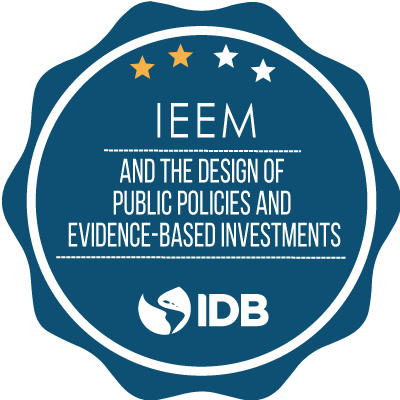IEEM and evidence-based investment and public policy design
Você pode ganhar este selo se concluir o curso com sucesso.
SOBRE ESTE CURSO
Welcome to the area for self-guided training, where you will find a series of learning resources and activities arranged in a staggered order, from the appropriation of conceptual knowledge to the application of the IEEM integrated environmental economic model, a tool that will allow you to analyze public and investment policies, with an emphasis on natural capital.
Within the INDES virtual classroom, readings, videos and other resources have been arranged to make navigation intuitive. To support your learning, three different models are included: IEEM and two other simpler ones (simple CGE and mini-IEEM). With the three models, you will be able to analyze different economic scenarios through a friendly interface called ISIM. Although it is not necessary to build the database or code mathematical models during this course, it will be important to identify the IEEM mathematical structure and operation in order to define possible scenarios, calibrate the model, run simulations and interpret results.
PÚBLICO DO CURSO
• Be able to understand texts written in the English language
• Contar con una conexión a internet y permisos de administrador en el computador que se utilice para instalar una interfaz dentro de Excel.
• Es recomendable tener habilidades en el manejo de Excel e interpretación de tablas dinámicas.
